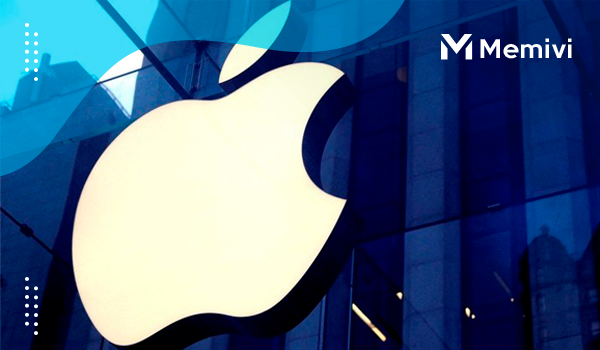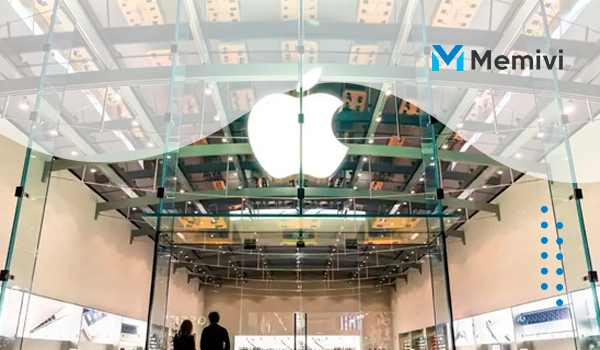
This achievement marks a significant moment not just for Apple, but for the entire tech industry, raising questions and expectations about the future. In this article, we will explore how Apple reached this point, what it means for the industry, and what might come next for this innovative company.
The Rise of Apple’s Brand Value
Apple’s brand value has seen a remarkable rise over the years, a journey marked by innovative product launches and strategic marketing efforts. One of the key drivers behind this growth has been their focus on quality and design. From the early days of the iPod to the revolutionary iPhone, Apple has consistently set itself apart with products that combine functionality and aesthetic appeal.
The launch of the iPhone in 2007 was a pivotal moment for Apple, redefining the smartphone industry and establishing Apple as a leader in technology and design. This innovative device not only changed how people communicate but also how they view technology as an integral part of daily life.
Apple’s dedication to building a loyal customer base cannot be understated. Through limited yet impactful product releases, Apple has maintained demand for their products by ensuring a high level of anticipation and excitement with each announcement. Their advertising strategies, focusing more on lifestyle and experience rather than just the product itself, have also contributed significantly to building a strong brand image.
Throughout this journey, Apple’s ability to maintain a strong and distinct brand identity has been critical. Their efforts in stores, packaging, and even software UI reflect a commitment to uniformity and excellence that can be recognized instantly worldwide.
As one of the leading innovators in the tech industry, Apple’s investment in research and development continues to ensure its place at the top of the market. With a robust approach to privacy and security, Apple not only differentiates itself from competitors but also builds trust with its users. This continuous evolution and adaptation to changing consumer preferences have been key factors in their escalating brand value.
Key Milestones Leading to Trillion Dollar Mark
The journey to Apple’s momentous achievement of reaching a trillion-dollar valuation is nothing short of remarkable. This path was paved with critical milestones that marked the company’s transformation from a small tech startup to a global powerhouse. One significant milestone was the launch of the iPhone in 2007. The smartphone revolutionized the industry and solidified Apple’s reputation as an innovator.
Development of the App Store was another crucial milestone. Launched in 2008, the App Store opened a new era for mobile applications and firmly set Apple apart from its competitors. This platform not only expanded Apple’s ecosystem but also significantly increased its revenue streams.
Throughout the years, Apple’s relentless focus on design and user experience has been a key factor in its success. Products like the MacBook, iPad, and Apple Watch became symbols of quality and luxury, attracting millions of loyal users worldwide.
Financially, strategic decisions such as share buybacks and smart acquisitions also contributed to Apple’s growth. By buying back shares, Apple increased its stock value, propelling it closer to the trillion-dollar mark. Meanwhile, acquisitions like Beats by Dre enriched its portfolio and expanded its market presence.
However, these milestones are part of a larger picture, involving innovative marketing strategies, a strong brand identity, and continued product diversification. Each step taken reinforced Apple’s position not only as a tech giant but as a leading brand influencing the global market.
Implications for the Tech Industry

The historic achievement of Apple becoming the first company to reach a market valuation of $1 trillion has profound consequences for the tech industry. This landmark reflects not only Apple’s pioneering innovation but also sets a new benchmark for what tech companies can aspire to achieve. Apple’s success encourages other companies to invest more aggressively in research and development, driving the creation of cutting-edge technologies that promise to transform our daily lives.
Such a milestone also fuels competition among tech giants, prompting them to enhance their products and services while striving to capture greater market share. As a result, consumers stand to benefit from an array of improved products offering enhanced functionality and user experience. Apple’s valuation could further influence investors to channel more funds into tech startups, promoting a vibrant ecosystem of innovation that propels the entire industry forward.
Moreover, regulatory scrutiny could increase as governments become more attentive to the increasing influence of tech conglomerates. Apple’s case may set precedents in legal and economic decisions affecting how technology companies operate globally.
Though Apple’s valuation milestone is significant, it also highlights the growing disparities in the tech industry, pushing smaller firms to innovate faster to compete or collaborate within this dynamic market landscape. Companies that aim to follow Apple’s path must focus on creating robust ecosystems around their products, much like Apple’s strategy of linking hardware, software, and services.
What the Future Holds for Apple
Apple continues to innovate with groundbreaking technology. The company’s future appears promising, fueled by strong research and development investment. Apple’s transition to self-designed chips is a key strategy to gain more control over its hardware and software integration, boost performance, and reduce dependency on third-party suppliers.
Apple’s focus on sustainable practices may lead to new eco-friendly products. Initiatives like utilizing recycled materials in devices can enhance their brand image in the environmentally conscious market. Furthermore, expansion in the service sector, including Apple Music, Apple TV+, and iCloud, positions Apple to diversify its revenue streams beyond hardware sales.
As Apple’s installed user base grows, so does the potential for increased adoption of its services. This symbiotic relationship between users and services fosters a loyal customer base and generates consistent revenue flow. Apple’s potential ventures into augmented and virtual reality could redefine how consumers interact with technology, showcasing their capability to set industry trends continuously.
Additionally, Apple’s approach to privacy and security remains a crucial factor in maintaining customer trust. By prioritizing data protection, Apple’s future innovations can reinforce its reputation as a reliable and secure brand.
The expansion into growing markets, particularly in Asia, is another focal point, as emerging economies present new opportunities for market penetration and revenue growth. Apple’s future is bright with these strategies focusing on innovation, sustainability, and global market expansion.



 Demystifying the UK’s ‘Great Wealth Transfer’: What It Means for Young People. <p class='sec-title' style='line-height: normal; font-weight: normal;font-size: 16px !important; text-align: left;margin-top: 8px;margin-bottom: 0px !important;'> Demystifying the UK's 'Great Wealth Transfer' reveals its impact on future generations. </p>
Demystifying the UK’s ‘Great Wealth Transfer’: What It Means for Young People. <p class='sec-title' style='line-height: normal; font-weight: normal;font-size: 16px !important; text-align: left;margin-top: 8px;margin-bottom: 0px !important;'> Demystifying the UK's 'Great Wealth Transfer' reveals its impact on future generations. </p>  Understanding Your UK Credit File: What’s on It and How to Fix Errors. <p class='sec-title' style='line-height: normal; font-weight: normal;font-size: 16px !important; text-align: left;margin-top: 8px;margin-bottom: 0px !important;'> Learning the ins and outs of a UK credit file will help you make informed financial decisions. </p>
Understanding Your UK Credit File: What’s on It and How to Fix Errors. <p class='sec-title' style='line-height: normal; font-weight: normal;font-size: 16px !important; text-align: left;margin-top: 8px;margin-bottom: 0px !important;'> Learning the ins and outs of a UK credit file will help you make informed financial decisions. </p>  The UK’s Cost of Education: A Breakdown of School Fees and Saving for the Future. <p class='sec-title' style='line-height: normal; font-weight: normal;font-size: 16px !important; text-align: left;margin-top: 8px;margin-bottom: 0px !important;'> In this article, we will delve into various aspects of educational costs in the UK, offering insights into tuition, living expenses, and potential financial aid options. </p>
The UK’s Cost of Education: A Breakdown of School Fees and Saving for the Future. <p class='sec-title' style='line-height: normal; font-weight: normal;font-size: 16px !important; text-align: left;margin-top: 8px;margin-bottom: 0px !important;'> In this article, we will delve into various aspects of educational costs in the UK, offering insights into tuition, living expenses, and potential financial aid options. </p>